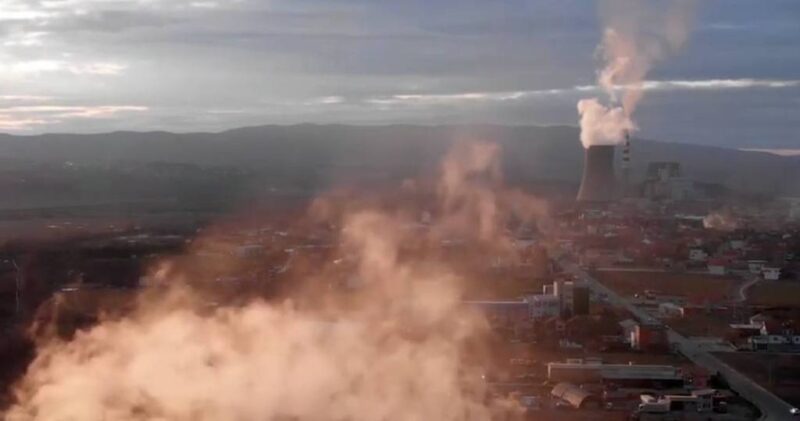Vidi Vaka, an Internews partner in North Macedonia, produced a report about the impact of thermal power plants on climate change and people’s health
The communities of Novaci and Bitola in North Macedonia have been suffering the effects of MEC Bitola, a combined lignite mine and power station that emits pollution from burning low quality coal.
The electricity is cheap and plentiful, accounting for 80% of the country’s output. But it comes at a cost – including high rates of lung cancer and more young people being diagnosed with cancer. A World Bank report estimates that 1,600 people in North Macedonia die prematurely every year as a result of exposure to the particles. These types of plants also emit high levels of carbon dioxide, the principal greenhouse gas that contributes to climate change.
“Some mornings I can’t inhale because of the strong smell. Sometimes it seems that everything around us is full of dust – dust we know comes from digging in the coal mine!” said a young man from Novaci.
Raising awareness about the pollution
Internews partner Vidi Vaka produced a multimedia story – The Silent Balkan Killers (the project in Macedonian) – to raise awareness about the issues with the plants. The story received an award from the Macedonian Institute for Media (MIM).
Because most of the population in Novaci and Bitola make a living from the factory, the producers found it difficult to get people to speak in public about the pollution. Some would speak if they weren’t identified or if they were activists such as Dragan Veljanov, who is trying to get the plants to install equipment that would reduce the emissions.
But the pollution is visible just walking around the area near the plants. “On the day we filmed there, dust flew on gusts of wind. After an hour in Novaci, the taste of dust filled our mouths,” said a Vidi Vaka team member.
There is some hope. North Macedonia’s government has approved a national energy strategy that makes it the first country in the Western Balkans to consider a coal phase-out before 2030.
